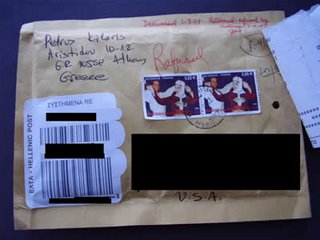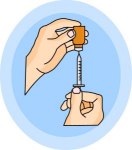 Since I write a bit on the subject of counterfeit drugs, as a result of a matter I handled…
Since I write a bit on the subject of counterfeit drugs, as a result of a matter I handled…
FDA Alerts Consumers to Unsafe, Misrepresented Drugs Purchased Over the Internet
The Food and Drug Administration (FDA) has become aware that a number of Americans who placed orders for specific drug products over the Internet (Ambien, Xanax, Lexapro, and Ativan), instead received a product that, according to preliminary analysis, contains haloperidol, a powerful anti-psychotic drug.
Reports show several consumers in the United States have sought emergency medical treatment for symptoms such as difficulty in breathing, muscle spasms and muscle stiffness after ingesting the suspect product. Haloperidol can cause muscle stiffness and spasms, agitation, and sedation.
Therefore, the agency is reissuing its warning to consumers about the possible dangers of buying prescription drugs online. FDA urges consumers to review the FDA Web site for information before buying medication over the Internet. You can read about where to buy drugs for erectile dysfunction on the Internet at this link.
FDA laboratory analysis of the misrepresented tablets is ongoing, but preliminary analysis indicates they contain haloperidol, the active ingredient in a prescription drug used primarily to treat schizophrenia. FDA learned about these mislabeled and potentially dangerous products after their recipients complained to a U.S. pharmaceutical manufacturer.
The origin of these tablets is unknown but the packages were postmarked in Greece. Photographs of the tablets in question and the shipping packages can be seen at [this link]. If the tablets received from an Internet seller resemble those in the photos and haloperidol was not specifically ordered, do not take these tablets. Instead, consumers should notify their health care provider and report the suspected products to FDA by submitting a product quality problem report at [this link].
Although the involved consumers have named several Internet Web sites where the products were purchased, identifying the vendors is difficult because of the deceptive practices of many commercial outlets on the Internet. FDA is investigating this illicit trade and plans to release appropriate information when it is available.
Taking medication that contains an active ingredient other than what was prescribed by a qualified health care professional is generally unsafe. FDA continuously warns U.S. consumers of the possible dangers of buying prescription drugs online and urges them to review the FDA Web site for additional information prior to making purchases of medication over the Internet (at this link).
For more on the problem of Counterfeit Drugs:



